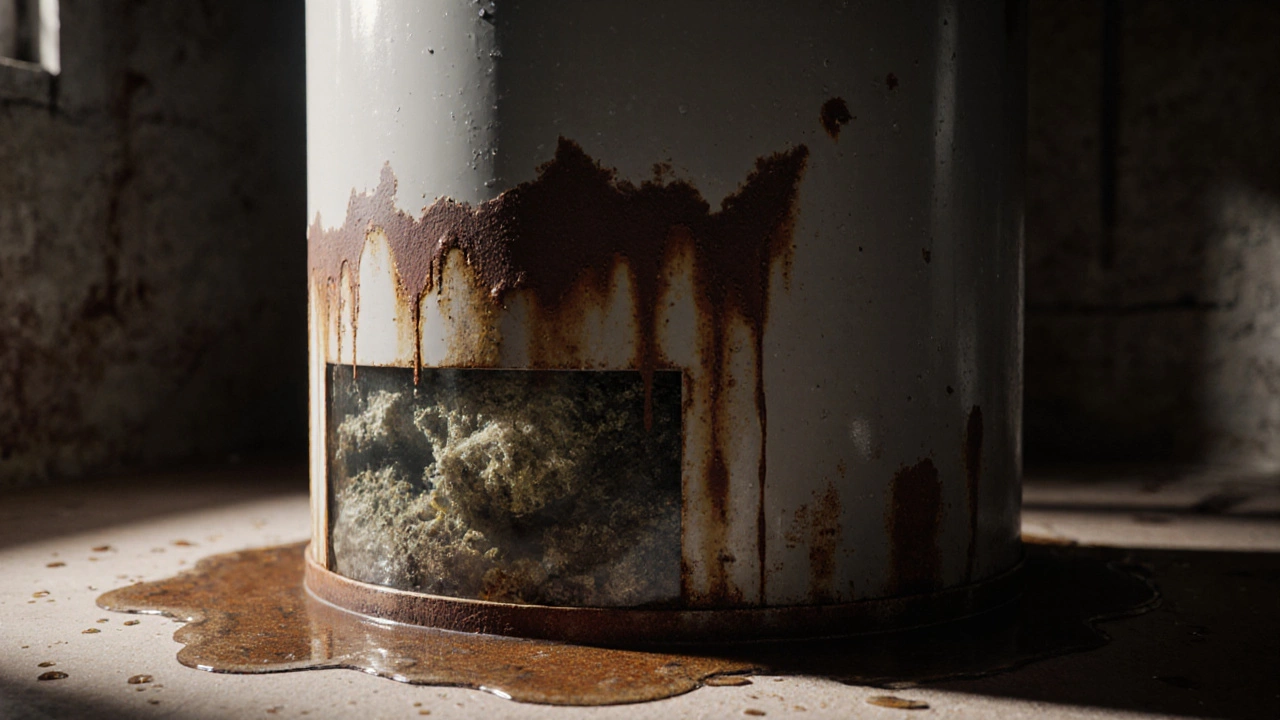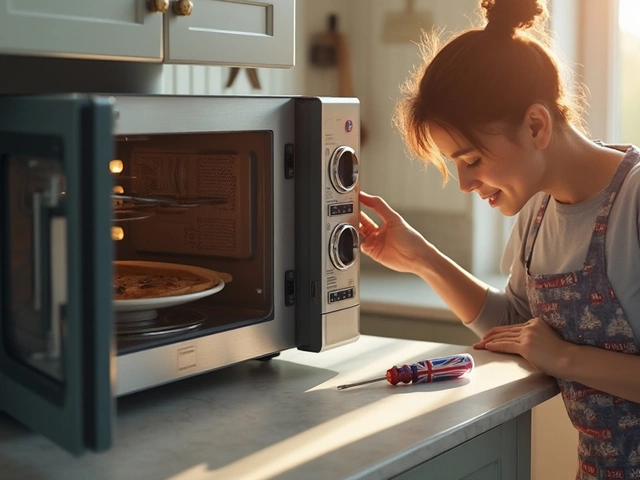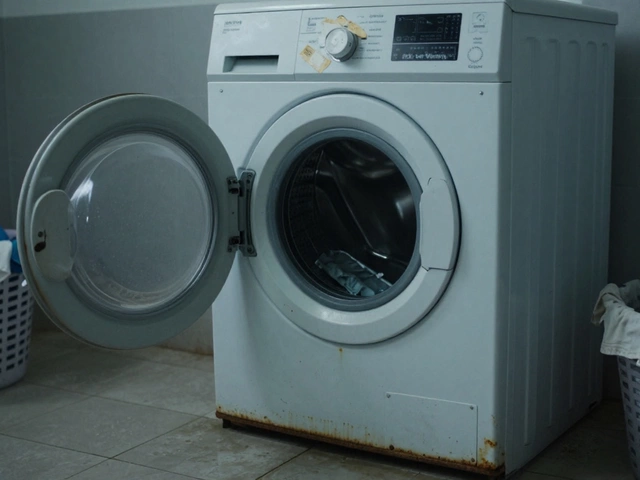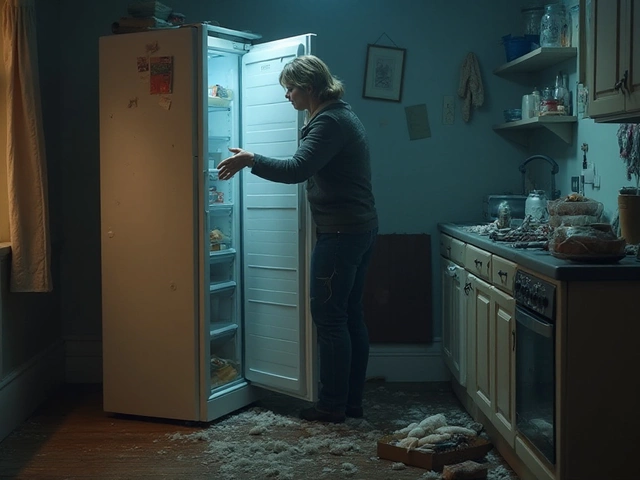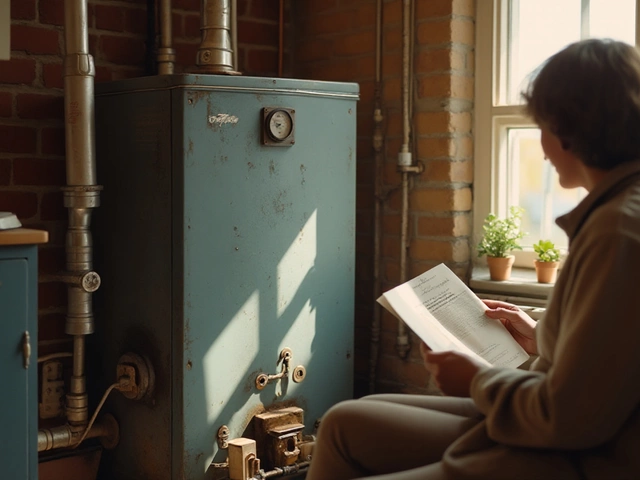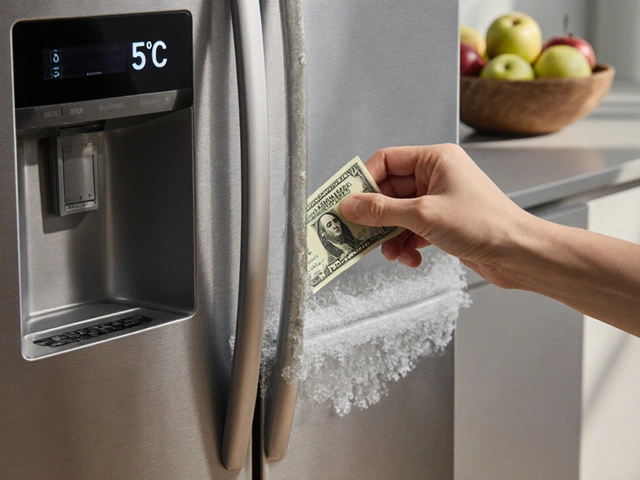Water Heater Lifespan Calculator
How long will your water heater last?
Enter your maintenance habits and water conditions to get a personalized estimate.
Your Estimated Lifespan
Your water heater is expected to last years.
Key recommendations:
Most people don’t think about their water heater until it stops working. Then suddenly, you’re standing in a cold shower, wondering why it didn’t last longer. The truth? A water heater doesn’t last forever - but how long it lasts depends on more than just brand names or price tags. In Adelaide’s hard water conditions, even the best units can wear out faster than you expect.
What’s the average lifespan of a water heater?
A standard tank-style water heater usually lasts between 8 and 12 years. That’s the number most manufacturers list, and it’s backed by real-world experience from plumbers across South Australia. Tankless water heaters, on the other hand, can last 15 to 20 years - sometimes even longer - because they don’t store water and have fewer parts that corrode.
But here’s the catch: those numbers mean nothing if you ignore maintenance. A water heater in a home with soft water and annual flushing might hit 15 years. One in a house with hard water and no care might die at 6. It’s not magic. It’s chemistry and physics.
Why do water heaters fail?
The biggest killer of water heaters is sediment buildup. Hard water in Adelaide contains high levels of calcium and magnesium. Over time, these minerals sink to the bottom of the tank, forming a thick layer. That layer acts like insulation - but the wrong kind. It traps heat, forcing the heating element to work harder. That overheats the metal, causes cracks, and eventually leads to leaks.
Another common issue is the anode rod. This sacrificial metal rod inside the tank attracts corrosive elements to protect the steel lining. Once it’s eaten away - usually after 3 to 5 years - the tank itself starts rusting from the inside out. Most homeowners never check it. By the time they notice rust on the floor, it’s too late.
Age isn’t always the villain. A water heater that’s too big or too small for the house can also wear out faster. Oversized units cycle on and off too often. Undersized ones run constantly. Both create stress on the system.
Signs your water heater is nearing the end
You don’t need to wait for a flood to know it’s time. Watch for these five red flags:
- Discoloured water - Rusty brown or muddy-looking hot water means internal corrosion has started.
- Strange noises - Popping, rumbling, or banging sounds come from sediment boiling under the heating element.
- Leaks around the base - Even a slow drip from the bottom valve or tank seam is a death sentence.
- Longer wait times - If it takes twice as long to get hot water, the heating element or thermostat is failing.
- Age over 10 years - If it’s older than 10 and you’ve never flushed it, treat it like a ticking clock.
One of my neighbours in Norwood ignored all these signs. She had a 14-year-old unit that started leaking during a weekend. By Monday, her laundry room was flooded. The damage cost more than a new water heater - and she still had to pay for emergency plumbing.
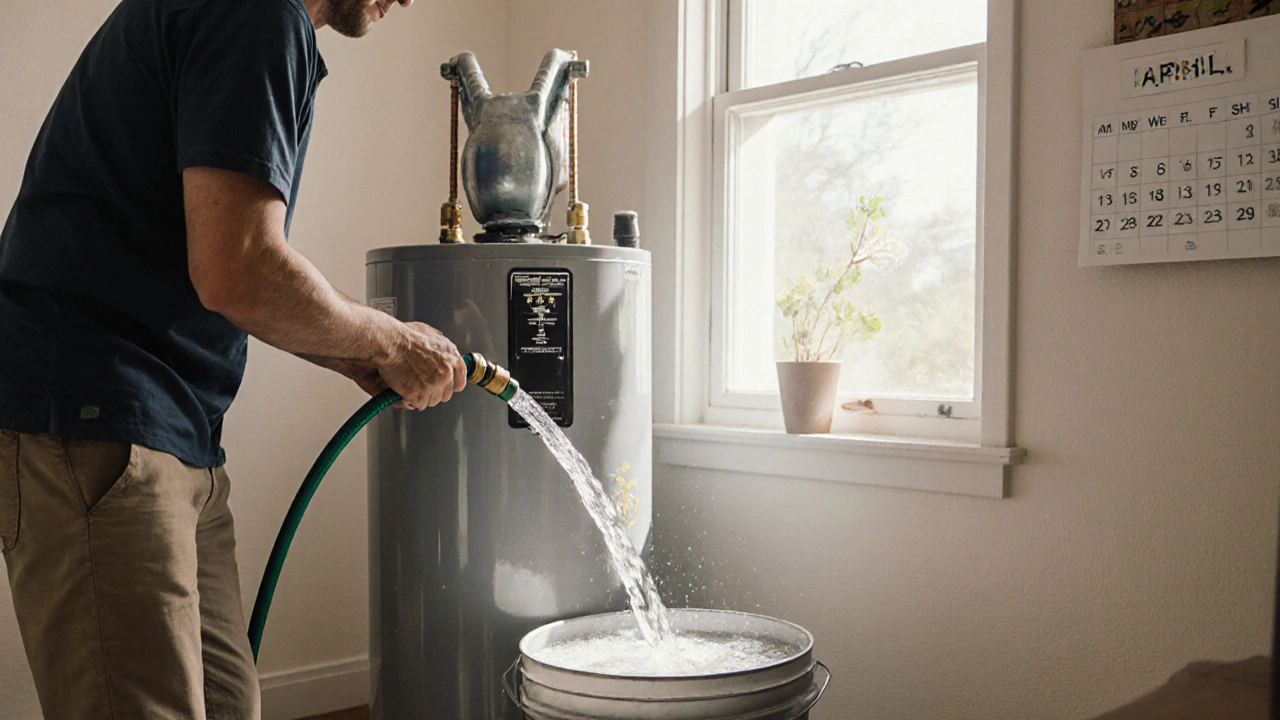
How to make your water heater last longer
You can extend your water heater’s life by 5 to 8 years with simple habits:
- Flush the tank annually - Attach a hose to the drain valve and let 5-10 litres run out. Do this once a year, preferably in spring. It removes up to 80% of sediment.
- Check the anode rod every 3 years - Turn off power and water, then remove the rod. If it’s eaten down to less than half its original thickness, replace it. A new rod costs $40 and takes 30 minutes to install.
- Set the temperature to 60°C - Higher settings (like 70°C) speed up corrosion and waste energy. 60°C kills bacteria and keeps your system efficient.
- Install a water softener if you have hard water - In Adelaide suburbs like Gawler or Murray Bridge, this can double your heater’s life.
- Don’t ignore small leaks - A tiny drip today is a full flood tomorrow.
These steps aren’t optional if you live here. The water in South Australia is some of the hardest in the country. Skipping maintenance is like driving a car without oil changes.
Tank vs tankless: Which lasts longer?
Here’s a quick comparison:
| Feature | Tank Water Heater | Tankless Water Heater |
|---|---|---|
| Average lifespan | 8-12 years | 15-20 years |
| Upfront cost | $800-$1,800 | $2,500-$4,500 |
| Energy efficiency | Medium (EF 0.6-0.7) | High (EF 0.8-0.95) |
| Annual running cost (4-person household) | $400-$600 | $250-$400 |
| Maintenance needed | Annual flushing, anode rod check | Annual descaling (due to hard water) |
| Best for | Budget buyers, small homes | Large families, long-term owners |
Tankless units cost more upfront, but they save money over time. In a home with 3+ people, the energy savings pay back the cost in 6 to 8 years. Plus, you never run out of hot water. But in Adelaide’s hard water, tankless heaters need annual descaling with vinegar or citric acid. Skip that, and mineral buildup kills the heat exchanger faster than a tank.
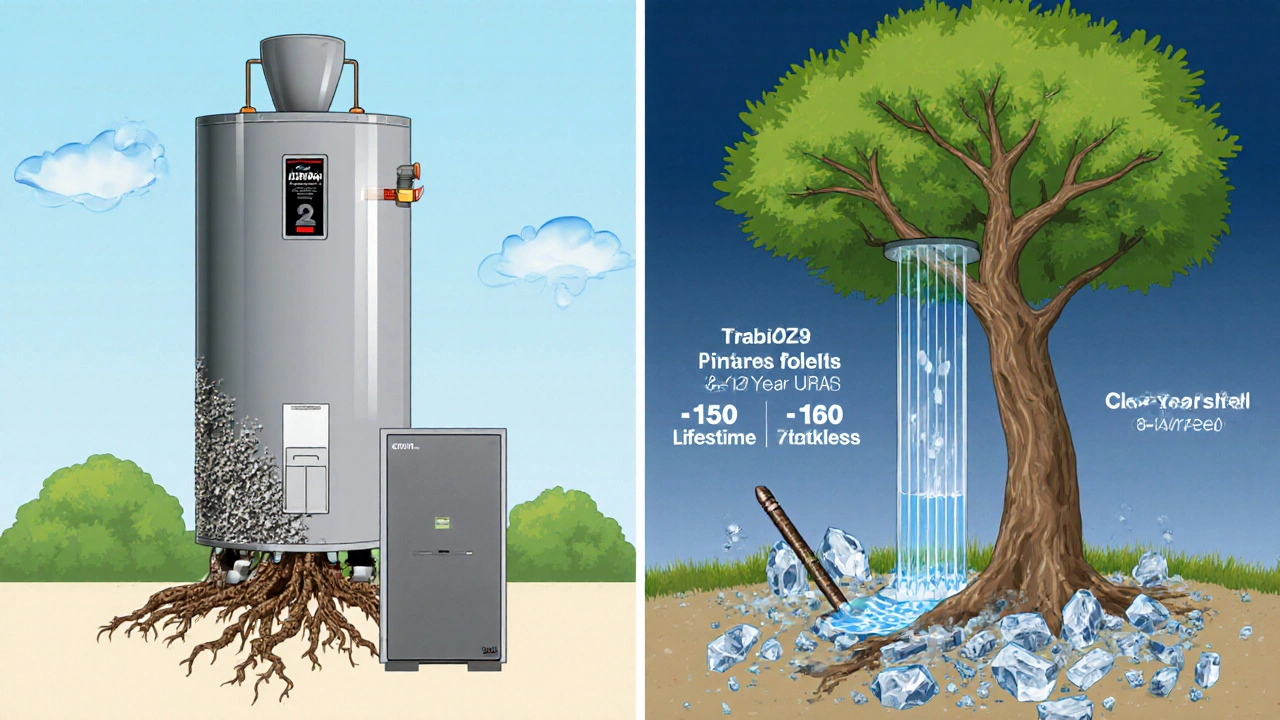
When to replace, not repair
It’s tempting to fix a leaking tank. But if your heater is over 8 years old, repair is usually a waste of money. Replacing the heating element or thermostat might cost $200-$300 - and you’re still stuck with a 10-year-old tank that could leak again next month.
Here’s the rule I follow: if the repair costs more than half the price of a new unit, walk away. And if the tank is rusted or leaking, don’t bother. Once the steel lining is compromised, no patch job will hold.
One thing to remember: older water heaters often use refrigerants or materials that are now banned. New models are safer, more efficient, and come with 6-12 year warranties. A new unit isn’t just a replacement - it’s an upgrade.
What to look for when buying a new one
Don’t just buy the cheapest one at Bunnings. Consider these three things:
- Size - A 30-40 litre tank is fine for 1-2 people. For 3-4 people, go 50-80 litres. Bigger isn’t always better.
- Energy rating - Look for a 5-star or higher rating. Even a half-star difference saves $50-$100 a year.
- Warranty - 6 years is standard. 10-12 years means the manufacturer has confidence in the tank lining. Avoid units with less than 6 years.
Also, check if your new heater needs a pressure relief valve upgrade. Older homes often have outdated plumbing that can’t handle modern units. A plumber can tell you if your pipes are ready.
Final thoughts
Your water heater is one of the most ignored appliances in your home - and one of the most expensive to replace when it fails. It doesn’t have to be that way. If you know the signs, do the simple maintenance, and replace it before it bursts, you’ll avoid stress, mess, and surprise bills.
In Adelaide, water heaters don’t die from old age. They die from neglect. Give yours a little care, and it’ll give you years of reliable hot water in return.
How often should I flush my water heater?
Flush your water heater at least once a year. In areas with hard water like Adelaide, doing it twice a year - in spring and autumn - helps prevent sediment buildup and extends the tank’s life. Just attach a hose to the drain valve and run water into a bucket or drain until it runs clear.
Is it worth replacing the anode rod?
Yes, especially if your water heater is over 5 years old. The anode rod is the single most cost-effective maintenance task. A new rod costs under $50 and takes less than an hour to install. Replacing it every 3-5 years can add 5-8 years to your tank’s life.
Can a water heater last 20 years?
A tank-style water heater rarely lasts 20 years, even with perfect care. But tankless models can easily reach 15-20 years if they’re descaled annually and installed correctly. The key is maintenance - not just the type of unit.
Why is my water heater making noise?
Rumbling, popping, or banging sounds are caused by sediment at the bottom of the tank. Water gets trapped under the layer of minerals and boils, creating noise. Flushing the tank usually fixes it. If the noise returns quickly, the sediment buildup is severe - and your heater may be nearing failure.
Should I switch to a tankless water heater?
It depends. If you have a large household and want endless hot water, a tankless model is a good long-term investment. But in Adelaide’s hard water, you must maintain it yearly with descaling. If you’re not willing to do that, a standard tank with a good warranty and regular flushing is a safer, simpler choice.

